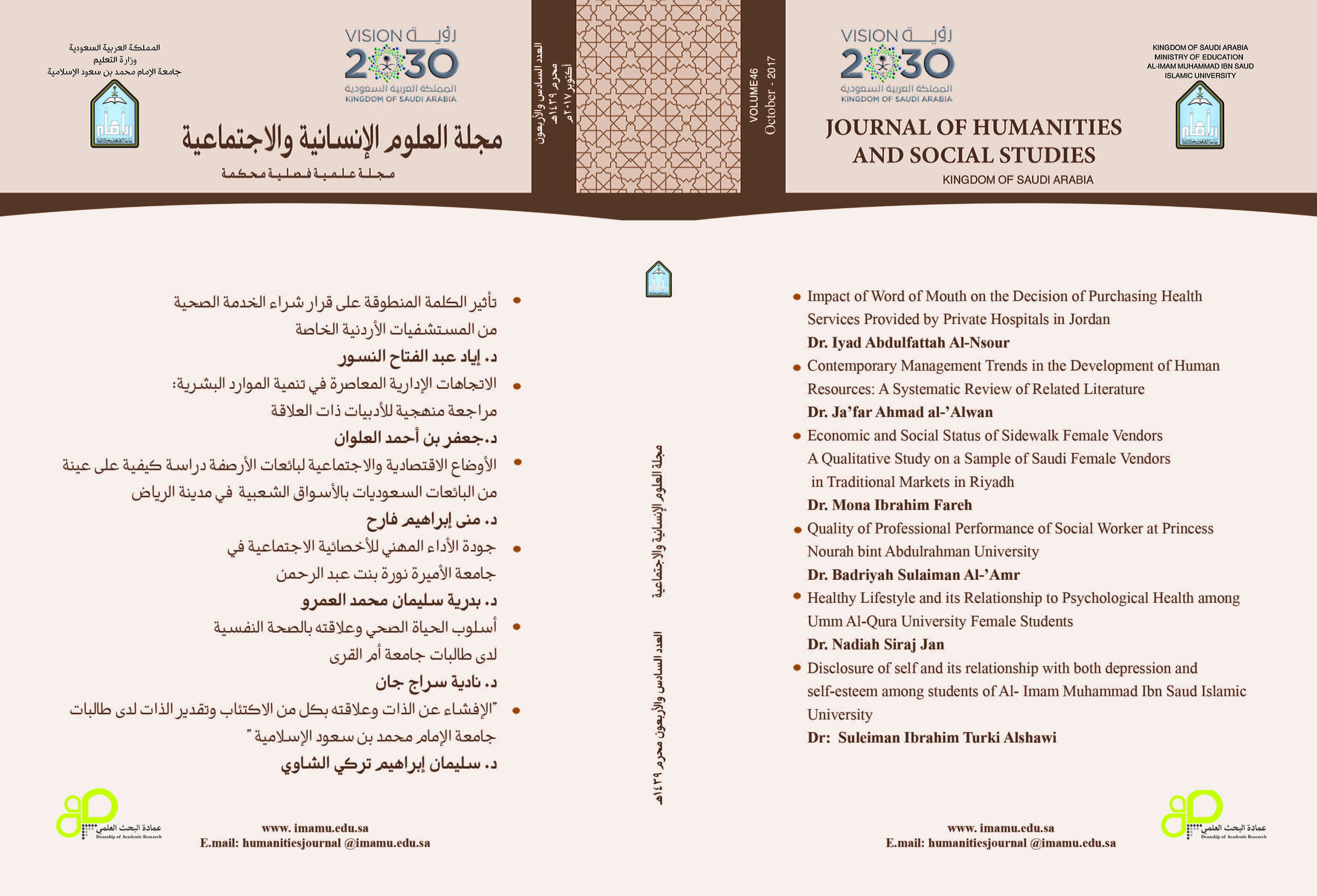Economic and Social Status of Sidewalk Female Vendors. A Qualitative Study on a Sample of Saudi Female Vendors in Traditional Markets in Riyadh
Keywords:
Sidewalk female vendors , social problems, economic problems, effects, reasonsAbstract
This study aims at identifying the economic and social status of Saudi sidewalk female vendors in Riyadh. To achieve this objective, interviews were conducted with seven Saudi female vendors who sell their goods on sidewalks. The study concludes that the age of the female vendors ranges from 34-65 years old, two of them are below 30 years old, most of them are illiterate, few of them are educated and they include widowed, divorced and married women. The economic status of their families is low and they live in small rented houses. Most of them suffer from chronic diseases such as diabetes, high blood pressure and arthritis. Their economic activity focuses on selling women's clothing and traditional food and most of the buyers are from the lower and middle classes. Their working hours usually start after the Asr prayer (afternoon) to ten at night.
The results show that the responsibility for supporting the family is their main motive for selling their goods on sidewalks, exposing themselves to problems that vary between health problems and social problems. The results reveal that there is a negative impact of the female vendor's work on her family, and a rejection by the children on the mother’s continuation to sell on sidewalks, as they feel socially embarrassed by her work. Female vendors have stated that they would refuse a job if they were offered one due to low monthly salary compared to what they earn by selling on sidewalks. Finally, all female vendors expressed their wish that the concerned authorities provide them with suitable premises for selling their goods to maintain their dignity and right to legitimate earnings without being subjected to abuse from any person.




